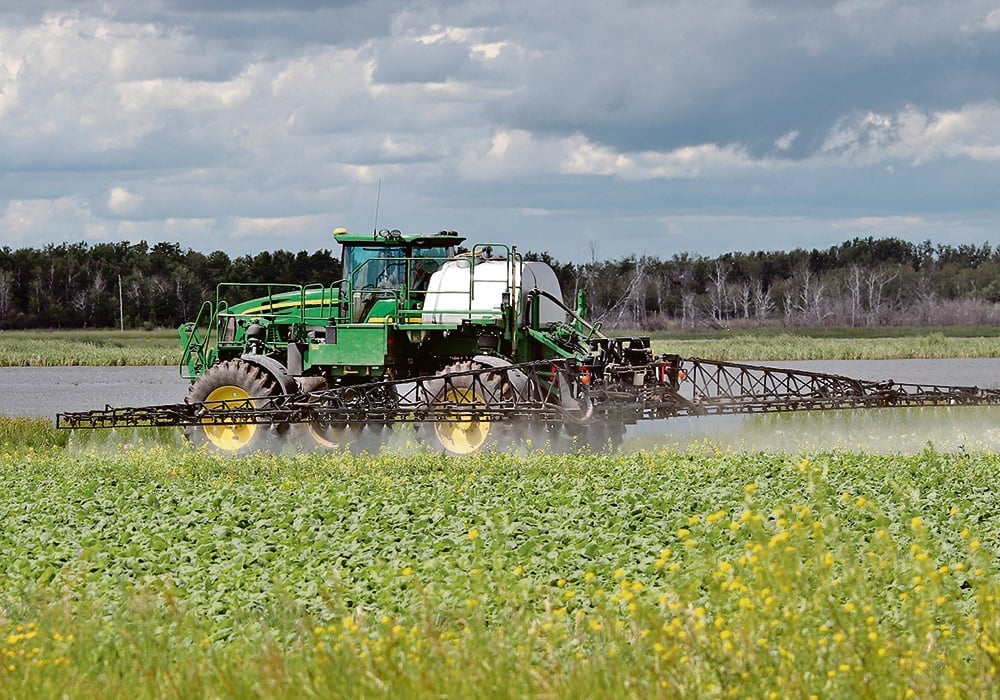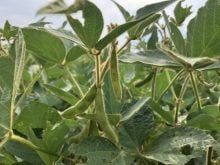It didn’t get a lot of press, but last fall the federal government took a stand to support Canada’s agriculture industry.
In December, the United Nations held a biodiversity conference in Montreal. The participants signed an agreement, called the Kunming-Montreal Biodiversity Framework, to protect nature and reverse biodiversity loss.
Leading up to the final agreement, some countries were pushing for a 50 percent reduction in pesticide use worldwide.
But Canada said “no.”
Read Also

Trump’s tariffs take their toll on U.S. producers
U.S. farmers say Trump’s tariffs have been devastating for growers in that country.
“To Canada’s credit, including our environment minister, standing up and saying that arbitrary use-reduction targets for pesticides is not the way to go — that (it) would impact productivity,” said Pierre Petelle, president and chief executive officer of CropLife Canada, which represents the crop protection and plant breeding industry.
“Canada played a very strong role in pushing back against that.”
In the end, the language on pesticides in the biodiversity agreement was changed. Nations at the Montreal conference agreed to reduce the risk from pesticides by at least half by 2030.
“There are many ways to reduce risk that are not correlated to reduction in pesticide use — for example, the timing of application, the effectiveness of a given product, science and other pest management approaches,” the federal government said in a June 20 announcement of its plans to strengthen the pesticide review process in Canada.
The government’s defence of pesticides is positive news for farmers and the agriculture industry,but concerns linger that Environment and Climate Change Canada (ECCC) is taking on issues outside of its mandate.
In the mid-1990s, the federal government created the Pest Management Regulatory Agency to oversee pesticides and pest management in Canada. Before the PMRA, the agriculture, health and environment departments all had roles in pesticide management and regulation.
Petelle and others are worried the PMRA is losing some of its authority over pesticides.
“We think the PMRA is still the regulator in charge,” he said.
“But I share some people’s concerns that Environment Canada seems to be taking up more and more space in this area.”
As an example, on June 20 the federal government announced that the use of cosmetic pesticides will no longer be permitted on federal lands.
Federal environment minister Steven Guilbeault praised the decision.
“By increasing monitoring and research on this issue, and eliminating the unnecessary use of pesticides for cosmetic purposes on federal lands, the Government of Canada is taking important first steps to support its commitments under the Kunming-Montreal Global Biodiversity Framework.”
CropLife Canada challenged the ban on federal lands, saying it questions the validity of PMRA decisions.
“(The PMRA) thoroughly assesses all pesticides for safety…. To deem pesticides safe and then turn around and ban them for so-called cosmetic purposes on their own lands sends conflicting messages to Canadians.”
The bigger worry for CropLife Canada and farmers is that ECCC is responsible for implementing the biodiversity framework across all departments of the government.
Petelle said CropLife will watch to ensure “there isn’t any overreach by ECCC.”
“Our ask, and request to government … is to make sure they respect the jurisdiction and authority that was granted to PMRA.”
















